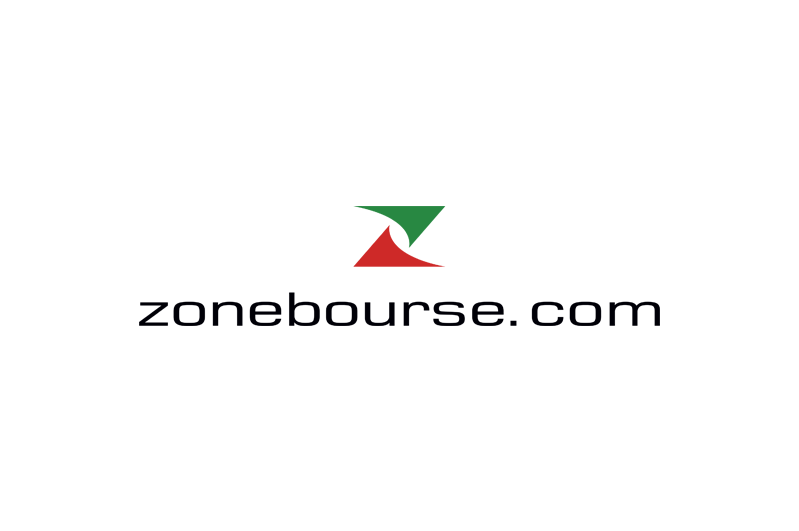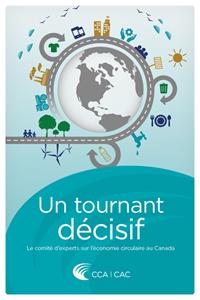OTTAWA, November 25, 2021 (GLOBE NEWSWIRE) – Canada is one of the world’s largest consumers of materials, energy and water. Only 6% of the materials entering the economy come from recycled products, while three-quarters of what we use is discarded. According to the new report by the Canadian Council of Academies (CCA) expert panel, the country is missing excellent opportunities to exploit this waste. If Canada were to transition to a circular economy (CE), the value it would reap from waste could allow it to remain economically competitive, while meeting its commitments to reduce greenhouse gas emissions and achieving its development goals.
Moving away from the current linear economic model of “extract, manufacture and dispose” requires systemic change and cooperation within supply chains, but such a transition is necessary because more resources are already being used than the planet can produce. Tens of billions of tons of materials are consumed every year around the world. Extraction and processing of these resources contribute to biodiversity loss, water stress and pollution, particularly through greenhouse gas emissions. Only a small part of the material is re-entered into the economy, which results in a significant loss of value. In addition to the environmental and economic impacts, this waste contributes to social inequality, such as the disproportionate exposure of marginalized communities to pollution.
“In the circular economy, products and materials last longer, particularly through reform and renewal,” explains Tima Bansal, MSRC, chair of the expert panel. The circular economy will create economic value, a healthier environment and a fairer society. But it requires transformative systemic change and can only be achieved through incremental progress and cooperation among all.”
In Canada, the low cost of landfill and raw materials, and the sense of an abundance of resources and space create economic disincentives to reduce waste and find a second use for the material. In order to design economic incentives to enhance circularity, governments can use financial leverage such as purchasing circular products and services, taxing waste and pollution rather than labour, and working and investing in circular infrastructure and in research and development.
Although the public is increasingly aware of the costs of excessive consumption, individual behavioral change is not sufficient to trigger the transition to citizenship education. However, this can be facilitated through education, public awareness and skill acquisition, which will encourage the participation of consumers and producers.
« decisive turning point Describes the potential benefits of moving from a standard linear business model to a circular one,” says Eric M. Meslin, Ph.D., MSRC, MACSS, Chairman and CEO of CAC. “The circular economy is a typical example of a multidimensional approach that requires the participation of all sectors, including This includes governments, companies and civil society. “
Environment and Climate Change Canada asked the council to study the opportunities and challenges of the circular economy in Canada.
decisive turning point It presents the circular economy and its current state in the country, as well as some tools and methods for measuring it in practice, and presents the first estimation of the circular rate in Canada ever made.
visit www.rapports-cac.ca To download the report.
contact person:
Heather Ennis
Director of Communications, Council of Canadian Academies
613-851-7723
[email protected]
About the Council of Canadian Academies
CCA is a non-profit organization that conducts independent, evidence-based assessments, through committees of experts, to guide public policy development in Canada. It was founded by three independent organizations that brought together some of the country’s greatest minds: the Royal Canadian Society, the Canadian Academy of Engineering and the Canadian Academy of Health Sciences. Its members and senior executives sit on the Board of Directors and Scientific Advisory Committee of the ACC, many of whom are members of expert committees. The founding academies also provide advice and feedback throughout the assessment process, as well as during the selection of expert panel members and the publication of reports. To learn more about CAC or its ratings, go to www.rapports-cac.ca.
Follow us on Twitter: Tweet embed
The image accompanying this ad is available at https://www.globenewswire.com/NewsRoom/AttachmentNg/f559137d-f7fa-47e5-9dd7-2bfab9b8bc88/fr




“Subtly charming problem solver. Extreme tv enthusiast. Web scholar. Evil beer expert. Music nerd. Food junkie.”


